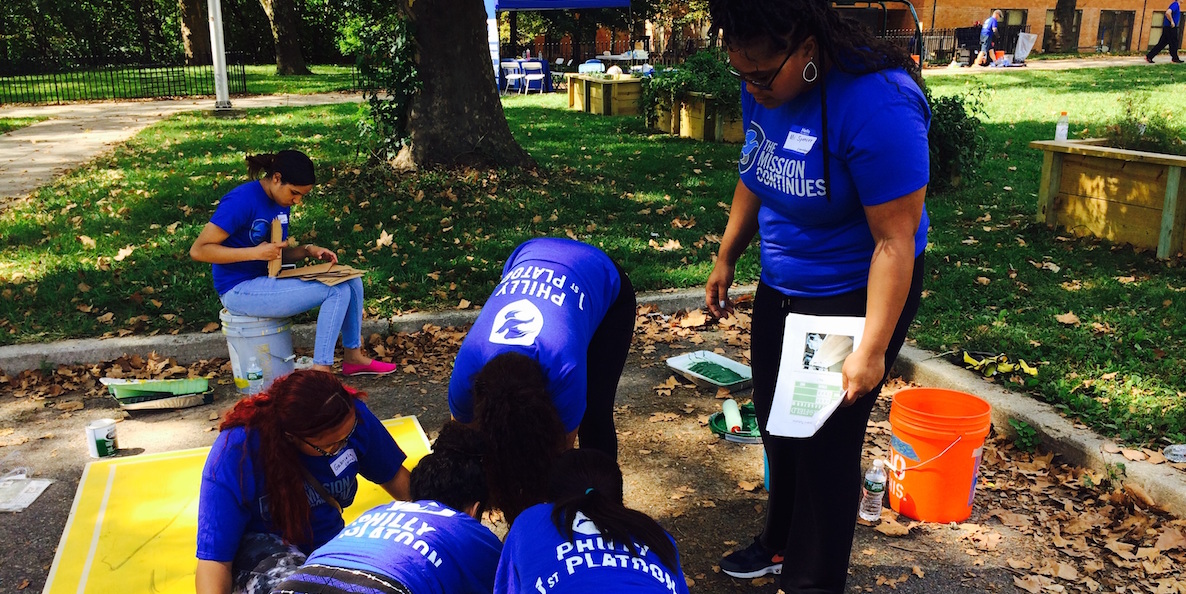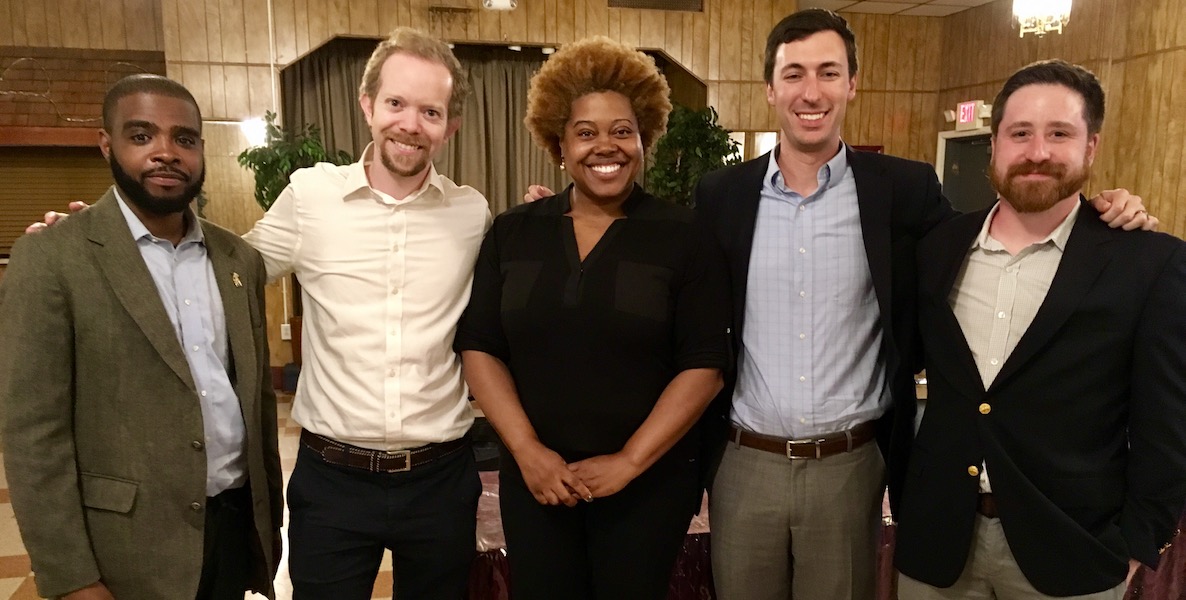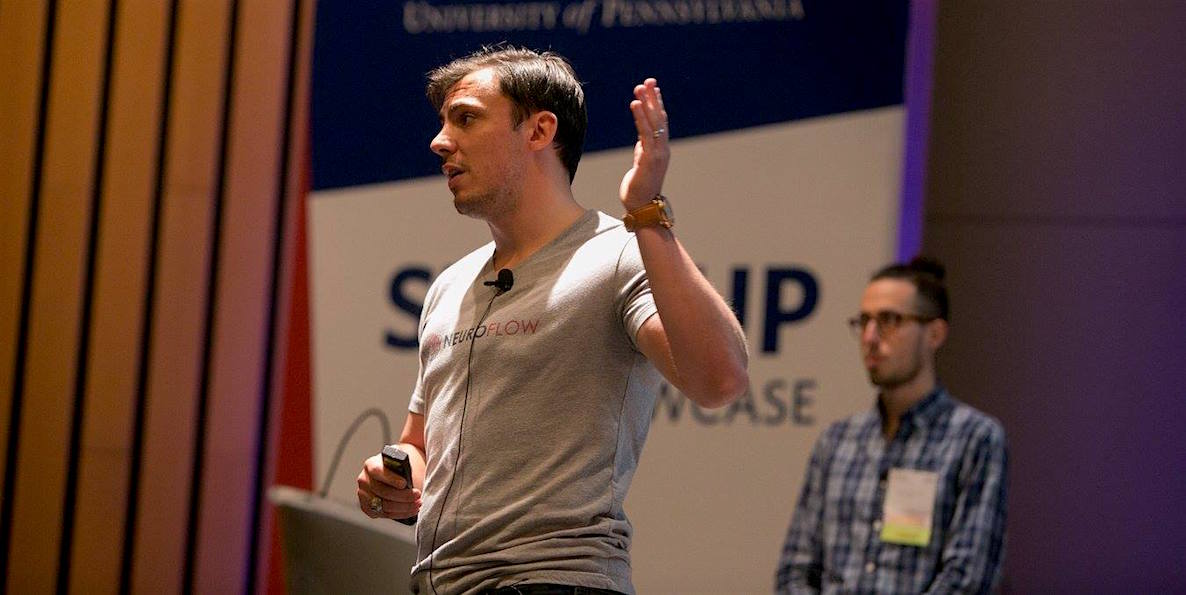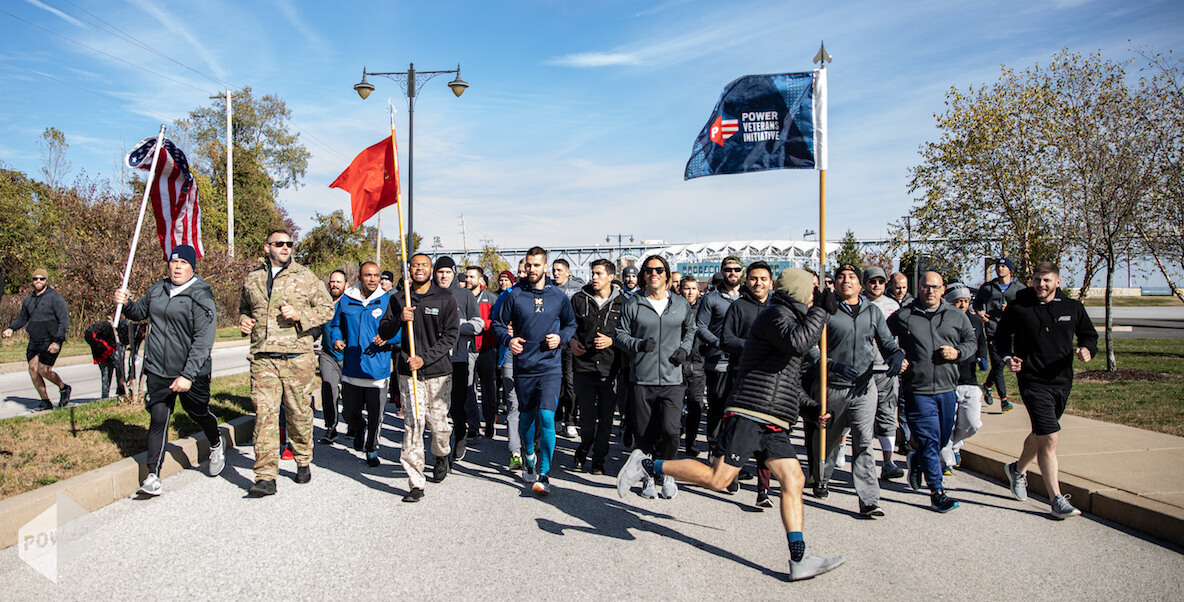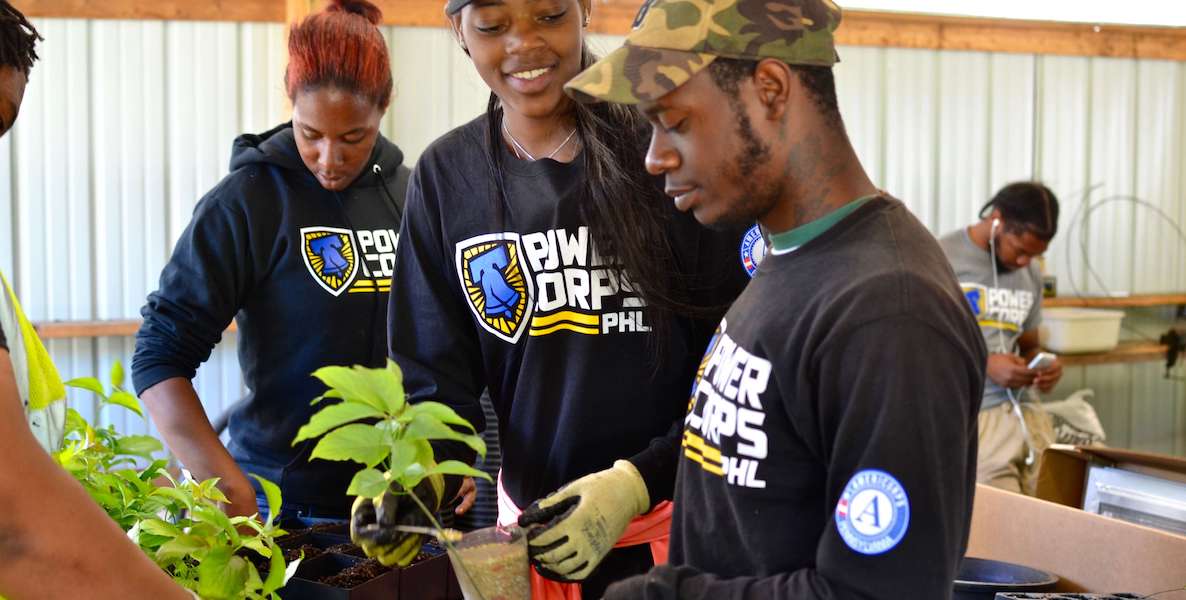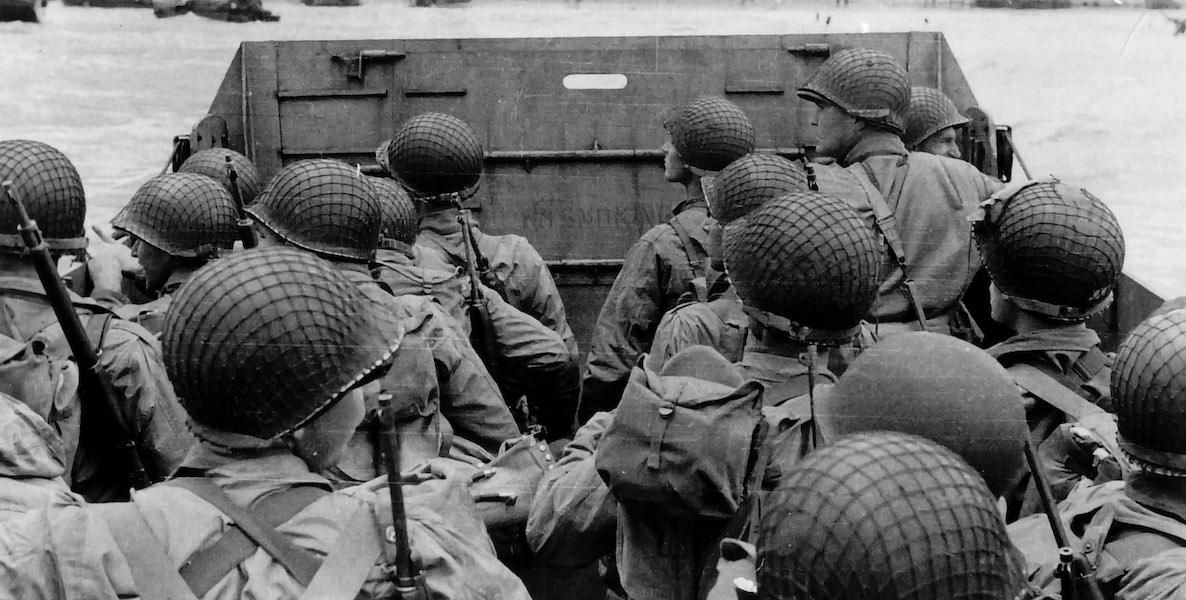When Mike Hansen joined the U.S. Marine Corps at age 17, his recruiter offered him these words of reassurance.
“You’re not deploying,” he said. “Don’t worry about it.”
Then Hansen showed up at boot camp, where he was immediately told the opposite. “Don’t unpack your bags,” the Master Gunnery Sergeant said. “You’re leaving in two weeks.”
The year: 2002.
Hansen proceeded to spend four deployments overseas. He received promotions. He helped build things in the Marine Corps that previously hadn’t existed. He experienced loss, grief, and growth.
When he finished his first contract in 2007, he was almost immediately hired in a civilian job in finance, splitting his time between Manhattan and San Diego.
“I was 22 years old with a six-figure salary, living the dream,” Hansen says.
![]() It was a good life … until the financial crisis hit. Hansen got laid off, lost everything—his house, his car, his sense of stability. He took an opportunity to deploy again, this time to Afghanistan. When he came back in 2010, he completed a bachelor’s program in two years and began a master’s program in Washington, D.C., hoping to start a career in government.
It was a good life … until the financial crisis hit. Hansen got laid off, lost everything—his house, his car, his sense of stability. He took an opportunity to deploy again, this time to Afghanistan. When he came back in 2010, he completed a bachelor’s program in two years and began a master’s program in Washington, D.C., hoping to start a career in government.
No one would hire him.
“I’d done everything right,” he says. “I had everything you need on paper, but I still couldn’t get a decent job,” he says.
A path forward
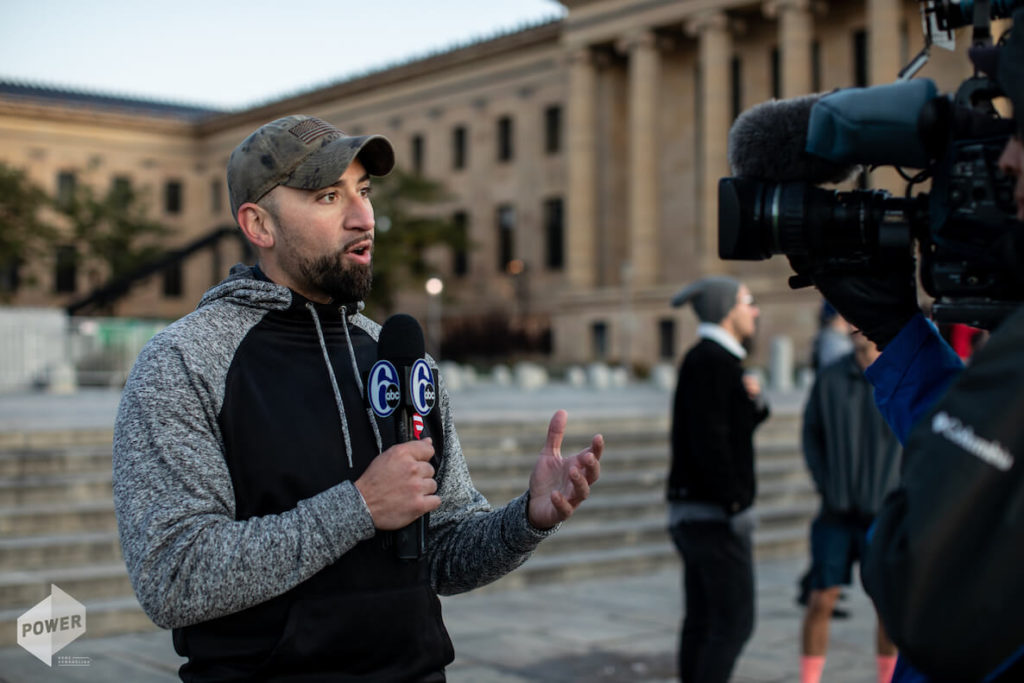
Around that time, a Marine Corps buddy told Hansen about a Chester-based company called Power Home Remodeling, Power for short.
Power focuses on energy-efficient remodeling products and services—siding, windows, roofing. It’s a field that, back in 2013, Hansen had zero passion for. Neither did he have an interest in sales, the positions for which Power was hiring.
But Hansen’s no diva; he needed a job, so he said yes when Power offered him one.
Almost immediately he was smitten with his new workplace.
“What I fell in love with was the camaraderie,” he says. “When people get out of the military, the number-one thing that we miss is being part of a community, and having a sense of purpose.”
Power’s purpose drove Hansen to almost instant success. He got promoted twice within his first year, became a million-dollar rep, and exceeded every milestone.
“Authenticity is real—you can smell it out. And a lot of the military hiring programs across corporate America, close to 90 percent of them, are complete lip service or b.s., or they’re doing more harm than good. I didn’t want to do that,” Hansen says.
It was 2015, and the company was growing—Hansen, who’d started in the Maryland office, had already helped launch a Texas outpost—and had been recognized by Fortune magazine as a great workplace for millennials.
Hansen looked around and saw that it wasn’t just millennials who were thriving; his fellow vets at the company were, too—and he wanted to launch an initiative that would fuel their success further.
Leadership buy-in
Hansen took his idea to Asher Raphael, one of Power Home Remodeling’s co-CEOs. Raphael loved it.
“He pretty much gave me the rope to hang myself, which is not something that everybody in corporate America would do,” Hansen says of his boss’s open-mindedness.
Hansen moved to Philly, and spent the next nine months exploring how Power could have the most impact in the lives of veterans. He met with as many veterans groups as he could. He studied other corporations’ military programs. As he did, he became disheartened.
“Authenticity is real—you can smell it out. And a lot of the military hiring programs across corporate America, close to 90 percent of them, are complete lip service or B.S., or they’re doing more harm than good. I didn’t want to do that,” he says.
![]() He thought about having Power Home Remodeling build homes for disabled veterans, but that felt too one-and-done. What he landed on instead is a plan rooted in business, growth, numbers: an effort to recruit, train, and develop veterans and their spouses.
He thought about having Power Home Remodeling build homes for disabled veterans, but that felt too one-and-done. What he landed on instead is a plan rooted in business, growth, numbers: an effort to recruit, train, and develop veterans and their spouses.
“We realized that if we built an initiative on a platform of business, if done correctly, it would have the flywheel effect and continue to grow the organization,” he says. In other words, the numbers would speak for themselves.
Power’s Veterans Initiative officially launched in 2016. And now, of Power’s new hires, 13 percent are veterans or veteran spouses. Of all employees—there are more than 2,500—8.5 percent are veterans or veteran spouses.
In the initiative’s first year, veterans and veteran-spouses brought $6 million to the company; in 2019, they brought in $48 million.
“As a veteran, you can tell when you’re talking to an organization if they’re just looking at you as—I hate to even say it this way, but—a quota, versus you are going to hire me because of the value you believe I’m going to bring to your organization,” Good says. “I didn’t want to be some kind of sympathy-hire.”
Power works with veteran agencies, partnering with organizations like the U.S. Chamber of Commerce, Hiring Our Heroes, Wounded Warrior Project, Military Spouse Employment Partnership, and others to keep a steady pipeline of talent coming their way. All veteran or veteran-spouse hires are given a $3,000 signing bonus to help ease their transition from service to civilian employment.
They offer ongoing professional development, like this week’s fourth-annual Veterans Summit; it’s being held virtually, and features Medal of Honor recipient Kyle Carpenter as its keynote speaker.
“I was talking to Kyle in preparation for the Summit, and he was saying how he believes everyone’s extraordinary. It’s just circumstances or opportunities that bring it out,” Hansen says. “And Power’s program is a way to help more people realize their own dormant potential.”
Starting from the bottom
Sergeant Major Evan Good doesn’t want his Power Home Remodeling colleagues to call him by his military title.
“You can’t be a Marine forever,” says the Pennsylvania native, who was born in Altoona, raised in State College, and now lives in Richboro.
When he finished his service, an officer he’d worked with told him about FourBlock, another organization that helps military men and women find jobs.
Nothing jumped out at him—until he heard, through a contact on LinkedIn, about Power. He reached out, got on a call with Hansen and a few others. Immediately, it became clear that the fit was right.
“As a veteran, you can tell, when you’re talking to an organization, if they’re just looking at you as—I hate to even say it this way, but—a quota, versus you are going to hire me because of the value you believe I’m going to bring to your organization,” Good says. “I didn’t want to be some kind of sympathy-hire.”
Now in his second year at Power as a director of business technology, what Good cherishes most is the company’s team spirit.
![]() “There’s no competitiveness. I’m not trying to outdo you, you’re my teammate and I want the best for you, because we all win together,” he says, acknowledging Power’s parallel with the military mentality. “The difference between Power and the military, though, is that it’s warmer here. You walk in the halls and—Covid aside—people give high-fives and hugs, regardless of what department they’re in or level they’re at. It’s an amazing place to work.”
“There’s no competitiveness. I’m not trying to outdo you, you’re my teammate and I want the best for you, because we all win together,” he says, acknowledging Power’s parallel with the military mentality. “The difference between Power and the military, though, is that it’s warmer here. You walk in the halls and—Covid aside—people give high-fives and hugs, regardless of what department they’re in or level they’re at. It’s an amazing place to work.”
So why does Good bristle when people call him Sergeant Major, surely out of respect?
“I didn’t want to take my rank with me. I want to earn my way in this new career. I want to earn respect,” he says. “I have some learning to do—it’s a different world, and a new business and technology language I’m learning. But here at Power, they embrace me for who I am and know how to get the best results out of me.”
Culture shift
Power is poised to continue to grow—they’re launching in Phoenix and Pittsburgh next year, with plans to open two offices every year after that. And as they do, veterans and their spouses will be a key part in that evolution. Hansen wants to see more vets and spouses in leadership roles, driving the direction of the company.
“Our goal is to reach a point where we don’t need a Veterans Initiative, because it’s so wired into the genetic fiber of the organization. That’s what we’re shooting for,” he says.
He wishes more companies would do the same.
“If you’re going to have a veterans program and you don’t take it seriously, you’re missing out on all this dormant opportunity,” he says. Each year, he points out, 250,000 men and women transition out of the military. “I wish more of corporate America could realize the opportunity they’re sitting on.”
Photo courtesy Power Home Remodeling




